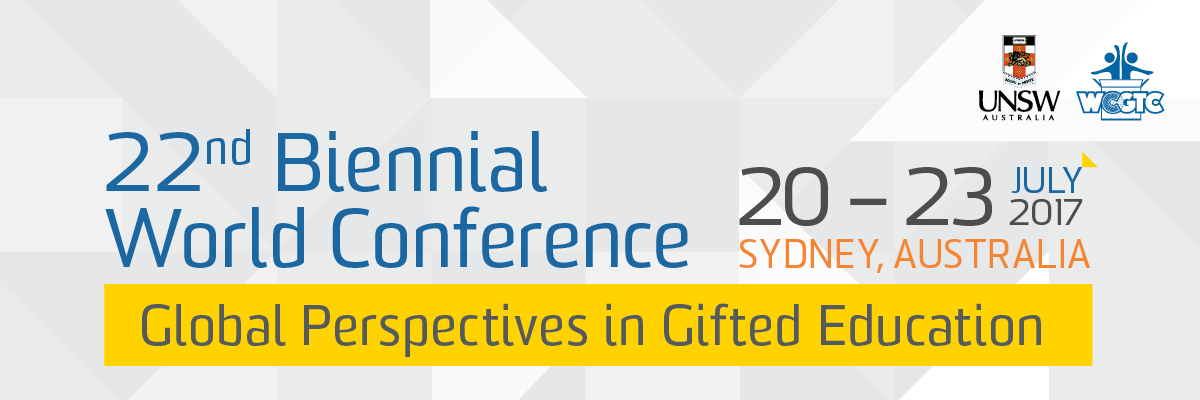Dr. Chester Finn
Senior Fellow, The Hoover Institution, Stanford University, and Distinguished Senior Fellow & President Emeritus, Thomas B. Fordham Institute
Gifted but disadvantaged (This keynote will be by telecommunication.)
Our study of challenges in the education of high-ability children in the USA and eleven other countries (http://hepg.org/hep-home/books/failing-our-brightest-kids) made vivid—though not surprising—that urgent issues in gifted education involve students from disadvantaged backgrounds. These children depend on the formal education system to help them realize their potential, while youngsters from prosperous, educated families often benefit from multiple options and knowledgeable “navigators” through the education system. PISA data from every country show far greater representation of upper SES children among high achievers (though the gap is far wider in some countries—including the U.S.—than others.) Remedies may include universal screening, targeted outreach, early opportunities, acceleration, special schools and classes (with entry apportioned across communities), additional out-of-school resources and counseling, and mastery-based progress through the primary-secondary curriculum. Assembling the resources and will to focus on disadvantaged children is difficult, however, as public pressure for gifted education is most likely to come from more fortunate parents and their representatives.
 Chester E. Finn Jr. is distinguished senior fellow and president Emeritus at the Thomas B. Fordham Institute. He is a scholar, educator, and public servant who has been at the forefront of the national education debate for thirty-five years. He was born and raised in Ohio and received his doctorate from Harvard in education policy. President from 1997 to 2014 of the Thomas B. Fordham Institute, where he remains as a distinguished senior fellow, he is also a senior fellow at Stanford University’s Hoover Institution where he chaired Hoover’s Koret Task Force on K–12 Education. A member of the Maryland State Board of Education, he is the author of over twenty books and more than 400 articles; his work has appeared in publications such as The Christian Science Monitor, Education Week, Harvard Business Review, The New York Times, The Wall Street Journal, Washington Post, and The Weekly Standard. Finn is the recipient of many awards and holds an honorary doctorate from Colgate University. He and his wife, Renu Virmani, a physician, have two grown children and three adorable granddaughters. They live in Chevy Chase, MD.
Chester E. Finn Jr. is distinguished senior fellow and president Emeritus at the Thomas B. Fordham Institute. He is a scholar, educator, and public servant who has been at the forefront of the national education debate for thirty-five years. He was born and raised in Ohio and received his doctorate from Harvard in education policy. President from 1997 to 2014 of the Thomas B. Fordham Institute, where he remains as a distinguished senior fellow, he is also a senior fellow at Stanford University’s Hoover Institution where he chaired Hoover’s Koret Task Force on K–12 Education. A member of the Maryland State Board of Education, he is the author of over twenty books and more than 400 articles; his work has appeared in publications such as The Christian Science Monitor, Education Week, Harvard Business Review, The New York Times, The Wall Street Journal, Washington Post, and The Weekly Standard. Finn is the recipient of many awards and holds an honorary doctorate from Colgate University. He and his wife, Renu Virmani, a physician, have two grown children and three adorable granddaughters. They live in Chevy Chase, MD.
Dr. Seon-Young Lee
Seoul National University
Talent Dissemination: A Path Leading into the Future GT Education
For decades, gifted education has paved the path for talent identification and development, and yet less attention has been given to post talent development for gifted students. Although gifted students are considered as a social asset able to make positive changes for future society, research and practice in the field have rarely advocated disseminating their talent for society as a whole. Is talent development an ultimate goal of gifted education? This session will review and diagnose issues in gifted education today and suggest a new path for gifted education that goes beyond the present talent development movement. Gifted students’ awareness of sharing talent with other people, perceived responsibility for the society, and involvement in the community as a future leader will be addressed. In the session, the presenter will pinpoint talent dissemination as an imperative agenda for gifted and talent development (GT) education. She will also suggest an educational model designed to foster four types of global competence skills that facilitate the process of talent dissemination for gifted students.
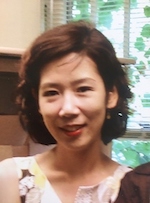 Seon-Young Lee, Ph.D., is an associate professor of the Department of Education at Seoul National University in Seoul, South Korea. Previously, she was a faculty member of the education department at Yonsei University and a research assistant professor at Northwestern University’s Center for Talent Development. She is currently an executive editor of Asia Pacific Education Review, an associate editor of the Journal of Advanced Academics and the Korean Journal of Educational Psychology, and on the editorial boards of Journal of Educational Psychology and High Ability Studies. Seon-Young has published 80+ research articles, books, and book chapters in the field of gifted and creative education. Her research interests encompass gifted students’ talent development, specialized gifted programs, creativity, peer relationships, and leadership development of gifted and creative students. She received the Gifted Child Quarterly Paper of the Year Award for 2011.
Seon-Young Lee, Ph.D., is an associate professor of the Department of Education at Seoul National University in Seoul, South Korea. Previously, she was a faculty member of the education department at Yonsei University and a research assistant professor at Northwestern University’s Center for Talent Development. She is currently an executive editor of Asia Pacific Education Review, an associate editor of the Journal of Advanced Academics and the Korean Journal of Educational Psychology, and on the editorial boards of Journal of Educational Psychology and High Ability Studies. Seon-Young has published 80+ research articles, books, and book chapters in the field of gifted and creative education. Her research interests encompass gifted students’ talent development, specialized gifted programs, creativity, peer relationships, and leadership development of gifted and creative students. She received the Gifted Child Quarterly Paper of the Year Award for 2011.
Dr. Jane Piirto
Ashland University
Organic Creativity in the Classroom: Teaching to Intuition in Academics and in the Arts.
Creativity can be taught and nurtured, and we can build classrooms in which creativity thrives. Twenty-three educators with over 500 years of classroom experience in K-18 have discussed how they use the Seven I’s (intuition, inspiration, insight, improvisation, incubation, imagery, and imagination), Five Core Attitudes (group trust, risk-taking, openness to experience, self-discipline, and tolerance for ambiguity), and General Practices for Creativity (ritual, exercise, a decision to live a creative life) in teaching students in literature, mathematics, social science, science, physics, foreign language, theatre, visual arts, songwriting, dance, music, arts education, educational psychology, gifted education, school counseling, and school administration. This session will focus on their common strategies.
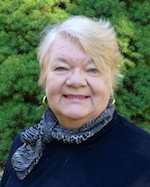 Jane Piirto has helped thousands of teachers and administrators to gain their bachelor’s, master’s and doctoral degrees and endorsements. She is a published and award-winning poet and novelist as well as Distinguished Scholar for the National Association for Gifted Children, a Torrance Creativity Award recipient, and a recipient of the Lifetime Achievement Award for the Mensa Education and Research Association. Among her books are 3 editions of Talented Children and Adults: Their Development and Education; 2 editions of Understanding Those Who Create; “My Teeming Brain”: Understanding Creativity Writers; Understanding Creativity; Creativity for 21st Century Skills; and her latest book (2014) is Organic Creativity in the Classroom: Teaching to Intuition in Academics and in the Arts. Among her literary work is Saunas: Collected Poems, and A Location in the Upper Peninsula, a book of collected poems, stories, and essays.
Jane Piirto has helped thousands of teachers and administrators to gain their bachelor’s, master’s and doctoral degrees and endorsements. She is a published and award-winning poet and novelist as well as Distinguished Scholar for the National Association for Gifted Children, a Torrance Creativity Award recipient, and a recipient of the Lifetime Achievement Award for the Mensa Education and Research Association. Among her books are 3 editions of Talented Children and Adults: Their Development and Education; 2 editions of Understanding Those Who Create; “My Teeming Brain”: Understanding Creativity Writers; Understanding Creativity; Creativity for 21st Century Skills; and her latest book (2014) is Organic Creativity in the Classroom: Teaching to Intuition in Academics and in the Arts. Among her literary work is Saunas: Collected Poems, and A Location in the Upper Peninsula, a book of collected poems, stories, and essays.
Professor Karen Rogers
University of St. Thomas
Worth the Effort: Finding and Supporting Twice Exceptional Learners in Schools
A recent search through the literature on twice exceptionality raised the issue (for me) of why there is a huge body of writing out there on twice exceptional learners, from early childhood to adulthood, but so little of it documents school practices in identification and programming to take advantage of the creative gifts these unique learners have the potential to contribute if they are found and supported. Is it that schools find it “just too difficult” to identify such students accurately or is it “just too difficult” to figure out what to do for these students and who in the school will or should do it? This presentation will focus on the extraordinary impact twice exceptional learners have made for the betterment of society and how these learners have been able to overcome even more than just having a disability connected to their giftedness and being neglected in school. The presentation will share a wide variety of evidence-based identification strategies, instructional support strategies, and resources that can help us come to our own conclusions about whether or not we have the capabilities needed to find and support these extraordinary learners.
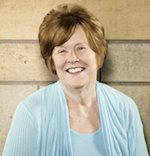 Karen Rogers is excited to be back in Australia after her 3-year sojourn here from 2005-2008 as Director of Research for GERRIC at UNSW. She is Professor Emerita at her beloved University of St. Thomas, but has continued receiving government research grants to further field-based investigations of what works or doesn’t work with both twice exceptional and other gifted underserved populations. She continues to teach 2-3 courses per semester, but no longer attends committee meetings or engages in any kind of activity that she feels is unproductive! She has written, co-written, and co-edited 7 books, published approximately 200 articles, and conducted 98 program evaluations and field based studies via grants and contracts. She currently sits on the Advisory Boards of the US Department of Defense Overseas Schools, Grayson School for the Gifted, College of William & Mary Gifted Education Center, and the Minnesota Department of Education Gifted Committee. She is a reviewer for most of the major journals that specialize in gifted education and has supervised doctoral dissertations for 37 applicants and reviewed 25 completed dissertations for a variety of universities in Australia and Asia. Since retirement she has been able to maintain a good balance between her professional and personal lives, incorporating loads of time with her 10 grandchildren and many weeks a year traveling with her husband to many of the places on her voluminous “bucket list.”
Karen Rogers is excited to be back in Australia after her 3-year sojourn here from 2005-2008 as Director of Research for GERRIC at UNSW. She is Professor Emerita at her beloved University of St. Thomas, but has continued receiving government research grants to further field-based investigations of what works or doesn’t work with both twice exceptional and other gifted underserved populations. She continues to teach 2-3 courses per semester, but no longer attends committee meetings or engages in any kind of activity that she feels is unproductive! She has written, co-written, and co-edited 7 books, published approximately 200 articles, and conducted 98 program evaluations and field based studies via grants and contracts. She currently sits on the Advisory Boards of the US Department of Defense Overseas Schools, Grayson School for the Gifted, College of William & Mary Gifted Education Center, and the Minnesota Department of Education Gifted Committee. She is a reviewer for most of the major journals that specialize in gifted education and has supervised doctoral dissertations for 37 applicants and reviewed 25 completed dissertations for a variety of universities in Australia and Asia. Since retirement she has been able to maintain a good balance between her professional and personal lives, incorporating loads of time with her 10 grandchildren and many weeks a year traveling with her husband to many of the places on her voluminous “bucket list.”
Mark Scott
New South Wales Department of Education
Delivering on the promise of potential
NSW public schools have an established reputation for the provision of quality education to all students and a history of creating opportunities for gifted students, regardless of background. This has shaped the future of many prominent high-achievers among our alumni who are proud graduates of public education. Still, we face the challenge of preparing young minds to meet the uncertainties, trials, and tasks of the 21st century. Our commitment is to lift the achievement of our brightest students to ensure that all students can achieve their potential. Our new policy to identify and extend our brightest minds aims to ensure our students can deliver on the promise of their potential. The policy has been developed through an analysis of student achievement data, a review of research and an extensive consultation process. It will provide strong support and guidance to teachers to enhance learning and teaching in every classroom.
 Mark Scott AO is the Secretary of the NSW Department of Education and has a distinguished record in public service, education and the media. The department is the largest education system in Australia, operating 2,200 public schools for almost 800,000 students.
Mark Scott AO is the Secretary of the NSW Department of Education and has a distinguished record in public service, education and the media. The department is the largest education system in Australia, operating 2,200 public schools for almost 800,000 students.
Mark’s career began as a teacher in Sydney. He built on his interest in education with senior policy and leadership positions with two NSW education ministers, Terry Metherell and Virginia Chadwick. Mark held a number of senior editorial roles at Fairfax, including Education Editor of The Sydney Morning Herald and Editor-in-Chief of metropolitan, regional and community newspapers. From 2006 to 2016, Mark was Managing Director of the ABC, overseeing the creation of new services like iview, News 24, ABC3 and digital radio and the expansion of online and mobile services, such as the ABC News site and podcasting. He led a shift within the organisation from a process-based culture to one that emphasises the values of respect, integrity, collegiality and innovation.
Mark was named an Officer of the Order of Australia in 2011 for distinguished service to media and communications, and to the community through advisory and governance roles with a range of social justice and educational bodies. Mark holds a Bachelor of Arts, a Diploma of Education and a Master of Arts from the University of Sydney; and a Master of Public Administration from Harvard University. He has also been awarded honorary doctorates from the University of Sydney and UNSW.
Professor Kirsi Tirri
University of Helsinki
Holistic Perspectives on Gifted Education for the 21st Century
In many European countries, such as Finland, education aims to support the development of the whole person rather than merely the cognitive domain. This kind of education acknowledges the importance of social and affective domains in student development, including their emotional and spiritual concerns. In this presentation Kirsi Tirri emphasize three perspectives that are important also for the holistic education for gifted students in the 21st century. They include values and worldviews that help young people to find purpose into their lives; growth mindset for learning that promotes creative thinking and ethical skills that are needed to live a moral life.
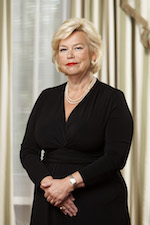 Dr. Kirsi Tirri is a Professor of Education and Research Director at the Department of Teacher Education at the University of Helsinki, Finland. She is the Chair of Doctoral Programme SEDUCE (School, Education, Society and Culture) and the Chairman of Finnish Academy of Science and Letters. She is also a visiting Professor at St. John’s University, New York, USA. Tirri has been the President of ECHA (European Council for High Ability) during 2008-2012 and the President of the SIG International Studies at AERA (American Educational Research Association) during 2010-2013. She serves on 13 Editorial Boards of educational journals. She has supervised 21 doctoral dissertations in education and theology and mentored many postdoctoral students who are now professors and researchers in education. She has led the Finnish team in many national and international research projects.
Dr. Kirsi Tirri is a Professor of Education and Research Director at the Department of Teacher Education at the University of Helsinki, Finland. She is the Chair of Doctoral Programme SEDUCE (School, Education, Society and Culture) and the Chairman of Finnish Academy of Science and Letters. She is also a visiting Professor at St. John’s University, New York, USA. Tirri has been the President of ECHA (European Council for High Ability) during 2008-2012 and the President of the SIG International Studies at AERA (American Educational Research Association) during 2010-2013. She serves on 13 Editorial Boards of educational journals. She has supervised 21 doctoral dissertations in education and theology and mentored many postdoctoral students who are now professors and researchers in education. She has led the Finnish team in many national and international research projects.
Professor Helen Watt
Monash University
Harnessing Girls’ and Women’s Talent Potentials in STEM Domains
Despite more than 35 years of research and policy aimed at increasing girls’ and women’s participation in STEM (science, technology, engineering and mathematics), why do gender differences stubbornly persist? The Australian Industry Group (2015) cautioned, “the pipeline of STEM skills to the workforce remains perilous” because participation in sciences and advanced mathematics at school and university is in decline, participation is not comparable with other nations, and our students underperform in major international studies. Gender differences in STEM enrolments and aspirations prematurely restrict girls’/women’s career options, having ramifications for women’s later wellbeing from economic and psychological perspectives. The 2025 strategy put out by the Office of the Chief Scientist (2013) stipulates improved female participation as a key action. Despite equivalent abilities, in Australia women currently earn 5% of the doctoral degrees in physical sciences, 11% in chemical science and 50% in biology (Dobson, 2012). At the Bachelor level, 53% of degrees went to women in the natural and physical sciences, 13% in information technology, and 15% in engineering and related technologies (Australian Government Department of Education and Training, 2014). In this address, I will share key findings from the STEPS Study (www.stepsstudy.org), in which I have been following longitudinal samples of youth over the past two decades, to examine whether and how girls/boys are differently motivated in STEM; how motivations matter differently in directing them towards particular purposes and aspirations; and, how features of their learning environments can promote or diminish their motivations.
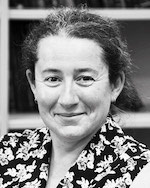 Helen Watt is Professor in the Faculty of Education, Monash University, and Australian Research Council Fellow 2011–2015. Previously she served at the Universities of Michigan, Western Sydney, Sydney, and Macquarie. Her interests include STEM motivation and engagement, gendered educational and occupational choices, and quantitative analyses for developmental data. Her work has implications for redressing the gender imbalance in mathematics and science-related careers, and supporting career development for beginning teachers. Helen is founder and coordinator of Network Gender & STEM, Associate Editor for AERA Open, and on the editorial boards of the International Journal of Quantitative Research in Education, Contemporary Educational Psychology, and Australian Journal of Education. She has attracted awards, media and competitive funding, and co-edited books and journal special issues including Gender and occupational outcomes (2008); Understanding women’s choice of mathematics- and science-related careers (2006); Teacher motivation (2014); and Global perspectives on teacher motivation (2017).
Helen Watt is Professor in the Faculty of Education, Monash University, and Australian Research Council Fellow 2011–2015. Previously she served at the Universities of Michigan, Western Sydney, Sydney, and Macquarie. Her interests include STEM motivation and engagement, gendered educational and occupational choices, and quantitative analyses for developmental data. Her work has implications for redressing the gender imbalance in mathematics and science-related careers, and supporting career development for beginning teachers. Helen is founder and coordinator of Network Gender & STEM, Associate Editor for AERA Open, and on the editorial boards of the International Journal of Quantitative Research in Education, Contemporary Educational Psychology, and Australian Journal of Education. She has attracted awards, media and competitive funding, and co-edited books and journal special issues including Gender and occupational outcomes (2008); Understanding women’s choice of mathematics- and science-related careers (2006); Teacher motivation (2014); and Global perspectives on teacher motivation (2017).
Dr. Jim Watters
Queensland University of Technology
Contextualising learning in STEM: A realistic pathway for teachers of gifted students
Internationally there has been an enhanced focus on increasing student uptake of, science, technology, engineering and mathematics (STEM) subjects in higher education. However, for decades enrolment in mathematics and science at school level has been declining or stagnant. STEM subjects are appealing for many gifted students in the early years of schooling. Gifted students show extreme levels of curiosity about the natural world, are highly motivated, examine problems holistically and show advanced analytical reasoning skills. However, for many this curiosity and interest wanes as they progress through school. Although, gifted education has provided many models and strategies to engage highly able students these are rarely adopted. We can however turn to fundamental research in STEM education to understand ways to engage and develop sustained interest in STEM subjects. This presentation examines approaches advocated by STEM education research which are being implemented in many jurisdictions that show potential to address the waning interest of gifted students.
 James (Jim) Watters is an Adjunct Professor in Education at QUT. Jim draws on over 30 years of experience as a science teacher and science teacher educator. His particular interest has been in the education of students gifted in science and mathematics (more recently rebadged as STEM). Jim has run enrichment programmes, provided professional development, advised government on policy, supervised graduate students in gifted education, taught pre-service and in-service teachers in gifted education courses and published internationally in gifted education. He has a strong commitment to apply research to practice. His contributions to gifted education were recognised through the award of Eminent Australian in Gifted Education by the AAEGT.
James (Jim) Watters is an Adjunct Professor in Education at QUT. Jim draws on over 30 years of experience as a science teacher and science teacher educator. His particular interest has been in the education of students gifted in science and mathematics (more recently rebadged as STEM). Jim has run enrichment programmes, provided professional development, advised government on policy, supervised graduate students in gifted education, taught pre-service and in-service teachers in gifted education courses and published internationally in gifted education. He has a strong commitment to apply research to practice. His contributions to gifted education were recognised through the award of Eminent Australian in Gifted Education by the AAEGT.
